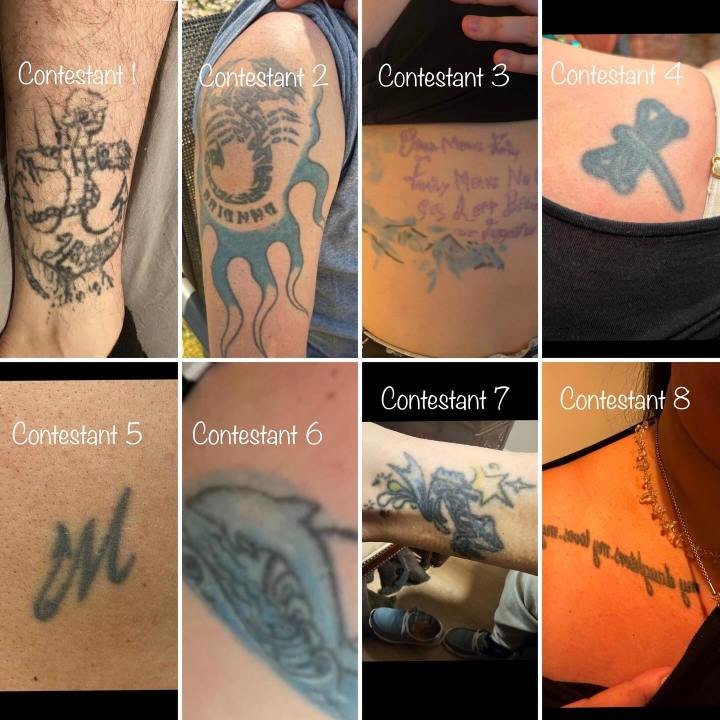How to Best Treat Acne Scars

Introduction
Acne scars can be a frustrating reminder of past breakouts, affecting not only our physical appearance but also our self-confidence. Understanding how to best treat acne scars is crucial for achieving smoother, more even-toned skin. In this article, we will explore the most effective treatments for acne scars and provide valuable insights into managing and minimizing their appearance.
Brief Explanation of Acne Scars
Acne scars are permanent marks or indentations on the skin that result from severe acne. They are caused by the inflammation and damage to the skin’s collagen fibers during the healing process.
Importance of Early and Effective Treatment
Addressing acne scars promptly is essential to prevent long-term damage. By treating acne scars early, you can minimize their severity and promote better healing. Early intervention also improves the chances of achieving more significant improvements in the appearance of your skin.
In the following sections, we will delve deeper into understanding different types of acne scars, exploring treatment options, discussing self-care tips for supporting scar healing, and highlighting lifestyle factors that can influence acne scar management. By combining professional treatments, self-care strategies, and positive lifestyle choices, you can embark on a comprehensive approach to effectively treat and manage your acne scars.
Understanding Acne Scars
Acne scars are a common skin concern that can have a significant impact on a person’s self-esteem and overall confidence. Understanding the different types of acne scars and how they are formed is crucial in determining the most effective treatment approach. Let’s delve into this topic further:
Exploring the Different Types of Acne Scars
- Ice Pick Scars: These are deep, narrow scars that resemble small puncture marks on the skin. They are typically caused by deep inflammation in the hair follicles, resulting in the destruction of collagen and elastin fibers.
- Rolling Scars: Rolling scars have a wave-like appearance and are caused by bands of scar tissue that develop beneath the surface of the skin. These scars occur when fibrous tissue forms between the upper layers of skin and deeper tissues.
- Boxcar Scars: Boxcar scars are characterized by their sharp edges and rectangular shape. They often occur as a result of inflammatory acne, which damages collagen fibers, leading to depressions in the skin.

How Acne Scars Are Formed
The formation of acne scars is a complex process involving multiple factors:
- Inflammation: When acne lesions become inflamed, the body’s immune response triggers an excess production of collagen, leading to scar tissue formation.
- Delayed Healing: In some cases, the body’s natural healing process is disrupted, causing acne lesions to take longer to heal and increasing the risk of scar development.
- Genetic Predisposition: Certain individuals may be genetically predisposed to developing severe or persistent acne scars due to variations in collagen production and wound healing processes.
Factors That Increase the Risk of Severe or Persistent Acne Scars
While anyone can develop acne scars, certain factors may increase the likelihood of more severe scarring:
- Picking or Squeezing Pimples: Manipulating acne lesions can damage the skin’s delicate tissue and prolong the healing process, increasing the risk of scars.
- Severity of Acne: Severe inflammatory acne, such as cystic acne, is more likely to result in significant scarring compared to milder forms of acne.
- Delayed Treatment: Failing to treat acne promptly and effectively can lead to prolonged inflammation and an increased risk of scar formation.
Understanding the different types of acne scars and the factors that contribute to their development is essential for choosing appropriate treatment options. In the next section, we will explore the crucial role of dermatologists in diagnosing and treating acne scars.
Consulting with a Healthcare Professional for Effective Acne Scar Treatment
When it comes to addressing acne scars, consulting with a healthcare professional is crucial for finding the right treatment that suits your specific needs. Here’s why it’s essential to seek expert guidance:
The crucial role of dermatologists in diagnosing and treating acne scars
- Dermatologists are specialized in identifying the different types of acne scars and assessing their severity. They can provide personalized recommendations based on the individual’s skin type, scar type, and overall health.
- By consulting a dermatologist, you can gain valuable insights into the most effective treatment options available, ensuring that you receive targeted and tailored care for your specific condition.
Why over-the-counter products may not be sufficient for treating moderate to severe acne scars
- Over-the-counter products may offer some benefits for mild acne scars, but they are often insufficient for addressing moderate to severe scarring.
- Dermatologists can prescribe advanced treatments such as prescription-strength topical medications, non-invasive procedures, or medical interventions that are not available over the counter.
- Additionally, healthcare professionals can monitor your progress closely and make adjustments to your treatment plan if necessary to ensure optimal results.
Consulting with a healthcare professional not only provides access to a wider range of effective treatments but also ensures that the chosen approach aligns with your unique skin characteristics and scar type. It’s an important step towards achieving successful outcomes in managing acne scars.
Effective Treatments for Acne Scars
When it comes to treating acne scars, there are various effective methods that can help improve the appearance of the skin and promote scar healing. Here are some key treatments to consider:
1. Topical Treatments with Ingredients like Salicylic Acid
Salicylic acid is a common ingredient found in many over-the-counter acne treatment products. It works by exfoliating the skin, promoting the shedding of dead skin cells, and helping to clear pores. When used consistently, salicylic acid can also aid in reducing inflammation and redness associated with acne scars. Additionally, it can play a role in minimizing hyperpigmentation caused by acne.
Applying salicylic acid directly to the affected areas can lead to significant improvements in the texture and tone of the skin over time. This topical treatment can be particularly beneficial for individuals with mild to moderate acne scars or those looking to prevent new breakouts while addressing existing scars.
2. Soft Tissue Fillers for Filling in Acne Scars
For individuals with dark skin tones, soft tissue fillers, such as hyaluronic acid injections, offer a non-invasive approach to temporarily improve the appearance of depressed acne scars. By injecting fillers into the scarred areas, it’s possible to level out the skin surface and achieve a smoother complexion. This method is especially beneficial for individuals with atrophic or pitted acne scars, as it provides an immediate visible enhancement without the need for surgical procedures.
3. Laser Treatment for Acne Scars
Laser resurfacing treatments have become increasingly popular for addressing acne scars and improving overall skin texture. These procedures work by removing damaged layers of skin, stimulating collagen production, and encouraging new skin cell growth. As a result, laser therapy can effectively smooth out uneven surfaces caused by acne scarring and reduce the visibility of pigmentation irregularities.
Different types of lasers may be utilized based on the specific needs of each individual, offering customizable solutions tailored to different scar types and skin tones.
4. Chemical Peels for Acne Scar Removal
Chemical peels are another option for individuals seeking to improve the appearance of their acne scars. These treatments involve applying a chemical solution to the skin, which causes exfoliation and peeling. Over time, this process results in the removal of damaged outer layers of skin, revealing smoother, more evenly toned skin beneath.
Chemical peels can be particularly effective in reducing post-inflammatory hyperpigmentation associated with acne scars while enhancing overall skin texture.
Incorporating these effective treatments into your skincare routine can significantly contribute to reducing the visibility of acne scars and improving your overall complexion. It’s important to consult with a dermatologist or skincare professional to determine the most suitable treatment plan based on your specific skin type and scar severity.
Remember that consistency is key when it comes to seeing noticeable improvements in acne scar appearance, and combining different treatment modalities may yield enhanced results in addressing various aspects of scarring.
2. Non-Invasive Procedures
When it comes to treating acne scars, there are several non-invasive procedures that can help improve their appearance and texture. These procedures offer effective results without the need for surgery or extensive downtime. Let’s explore the role of each of these treatments in addressing acne scars:
- Injectable Fillers: Injectable fillers, often made with hyaluronic acid, can be used to temporarily improve the appearance of depressed acne scars. By injecting the filler into the scarred areas, it helps to plump up the skin and create a smoother surface. This treatment can provide immediate results and last anywhere from a few months to over a year.
- Laser Resurfacing Treatments: Laser resurfacing treatments, such as fractional laser therapy, can help smoothen the skin’s texture and promote collagen remodeling. The laser targets the damaged skin cells and stimulates collagen production, which helps to fill in the indented acne scars. Laser treatments also have the added benefit of improving overall skin tone and reducing post-inflammatory hyperpigmentation.
- Chemical Peels: Chemical peels are another option for reducing the appearance of acne scars. These peels involve applying a chemical solution to the skin, which causes exfoliation and removal of the top layer of damaged skin cells. This process leads to improved skin texture and a reduction in the visibility of acne scars. Chemical peels can also help even out skin pigmentation, making them suitable for individuals with post-inflammatory hyperpigmentation.
Each of these non-invasive procedures offers unique benefits in addressing different aspects of acne scars:
- Injectable fillers provide temporary improvements by filling in depressed scars.
- Laser resurfacing treatments stimulate collagen production and improve overall skin texture.
- Chemical peels focus on exfoliating the skin and enhancing pigmentation.
By combining multiple non-invasive procedures tailored to your specific acne scars, you can achieve more comprehensive and noticeable results. It’s important to consult with a healthcare professional, such as a dermatologist or cosmetic surgeon, to determine the most suitable treatment plan for your individual needs.
Remember, these non-invasive procedures are effective in reducing the visibility of acne scars but may not completely eliminate them. However, they can significantly improve the texture and appearance of your skin, helping you regain confidence in your complexion.
3. Medical Procedures
When it comes to treating acne scars, medical procedures offer advanced options for addressing more severe scarring. Let’s explore the following key treatments:
- Salicylic Acid for Acne Scar Treatment
- Benefits: Salicylic acid is known for clearing pores and reducing redness, making it an effective ingredient for managing acne scars. By promoting exfoliation, it can help improve the overall texture and appearance of the skin.
- Soft Tissue Fillers for Filling in Acne Scars
- Application: Injectable fillers are utilized to temporarily fill in depressed acne scars, providing a smoother skin surface. These fillers can help even out the skin and reduce the visibility of scars.
- Laser Treatment for Acne Scars
- Mechanism: Laser resurfacing treatments work by targeting the damaged skin, smoothing its texture, and stimulating collagen production. This process aids in reducing the appearance of acne scars and promoting overall skin rejuvenation.
- Chemical Peels for Acne Scar Removal
- Effectiveness: Chemical peels are used to remove the top layer of skin, improving texture, appearance, and pigmentation. They can be particularly beneficial in reducing post-inflammatory hyperpigmentation associated with acne scars.
- Microdermabrasion for Acne Scar Treatment
- Purpose: Microdermabrasion serves as a physical exfoliation technique suitable for mild acne scarring. It aids in improving skin texture and promoting a more uniform complexion.
Each of these medical procedures offers unique benefits in addressing various aspects of acne scarring, catering to different levels of severity and individual needs. By understanding the mechanisms and potential advantages of these treatments, individuals can make informed decisions when seeking professional care for their acne scars.
Self-Care Tips to Support Acne Scar Healing
Home skin care plays a crucial role in managing acne scars and supporting the healing process. Here are some essential self-care tips for treating acne scars at home:
1. Consistent Skincare Routine
Establishing a gentle and consistent skincare routine is vital for managing acne scars effectively. This includes using mild cleansers and moisturizers suitable for sensitive or scar-prone skin. Consistency in skincare helps maintain skin health and supports the natural healing processes.
2. Sun Protection
Sunscreen is an essential component of acne scar prevention. Regular use of sunscreen with adequate sun protection factor (SPF) not only protects the skin from harmful UV rays but also minimizes the risk of post-inflammatory pigmentation. Sun exposure can worsen the appearance of scars, making sun protection an integral part of scar management.
By incorporating these self-care tips into your daily routine, you can actively contribute to the healing and management of acne scars while complementing professional treatments and procedures.
Lifestyle Factors and Acne Scar Management
Managing acne scars involves more than just using creams and following skincare routines. Your lifestyle choices also play a crucial role in how well your scars heal and how you can prevent future scarring. In this section, we’ll explore two important aspects of this: the foods you eat and how you manage stress.
How Your Diet Can Affect Acne Scars
Maintaining a healthy diet that’s rich in essential nutrients can help improve your skin’s health and speed up the healing process for acne scars. Here are some key points to remember:
- Antioxidant-rich foods: Antioxidants protect your skin from damage caused by harmful molecules called free radicals. Make sure to include plenty of berries, leafy greens, citrus fruits, and nuts in your meals.
- Vitamin C: This vitamin is essential for producing collagen, a protein that helps repair damaged skin tissue. Oranges, strawberries, bell peppers, and broccoli are all excellent sources of vitamin C.
- Omega-3 fatty acids: These healthy fats have anti-inflammatory properties that can reduce swelling and redness associated with acne scars. Try adding fatty fish (like salmon or mackerel), walnuts, chia seeds, and flaxseeds to your diet.
- Zinc: Zinc plays a crucial role in collagen production and wound healing. Oysters, lean meats, legumes, pumpkin seeds, and whole grains are all good sources of this mineral.
While eating the right foods can support your skin’s health, it’s important to remember that diet alone won’t magically make your acne scars disappear. It’s always best to consult with a healthcare professional who can give you personalized advice based on your specific needs.
The Connection Between Stress Levels and Acne Scarring
Chronic stress can take a toll on both your physical and mental well-being – including your skin. When it comes to acne scars, stress can make things worse in a few different ways:
- Hormonal changes: Stress triggers the release of a hormone called cortisol, which can increase oil production in your skin. This excess oil can clog your pores and lead to more severe breakouts, potentially causing additional scarring.
- Weakened immune system: Long-term stress weakens your immune system, making it harder for your body to fight off bacteria and inflammation related to acne. As a result, your scars may take longer to heal, and there’s a higher chance of new ones forming.
- Skin picking: Many people have a habit of picking at their skin when they’re feeling stressed or anxious. Unfortunately, this can further damage the already sensitive skin around your acne lesions and increase the risk of scarring.
To manage stress effectively and reduce the likelihood of severe acne scarring, try incorporating these techniques into your daily routine:
- Exercise: Regular physical activity has been shown to lower stress levels and boost overall well-being.
- Relaxation methods: Find relaxation techniques that work for you, such as deep breathing exercises, meditation, or mindfulness practices.
- Healthy lifestyle choices: Prioritize getting enough sleep, maintaining a balanced schedule between work and personal life, and engaging in activities that bring you joy and relaxation.
By finding healthy ways to cope with stress, you can support your body’s natural healing processes and minimize the risk of severe acne scarring.
Remember, addressing acne scars requires a comprehensive approach that combines professional treatments, self-care strategies, and positive lifestyle choices. While you’re on this journey, it’s important to prioritize self-love and inner confidence – regardless of how your skin looks.
Embracing Confidence Beyond Acne Scars
Embracing a positive mindset and practicing self-acceptance are crucial components of the acne scar healing journey. While pursuing external treatments for acne scars, it’s important to prioritize self-love and inner confidence.
“True beauty emanates from within, and embracing self-acceptance is an empowering step towards holistic healing.”
Conclusion
The treatment of acne scars is important for maintaining healthy skin and confidence. By addressing acne scars promptly and using a comprehensive approach that combines professional treatments, self-care strategies, and positive lifestyle choices, you can effectively minimize the long-term impact of these scars on your skin and confidence.
It’s important to remember that everyone’s experience with acne scarring is different, so it’s always a good idea to consult with a dermatologist for personalized advice. They can provide valuable insights into the most suitable treatment options for your specific condition.
By taking proactive steps to address acne scars, you can regain smoother, healthier-looking skin and embrace a renewed sense of confidence.










